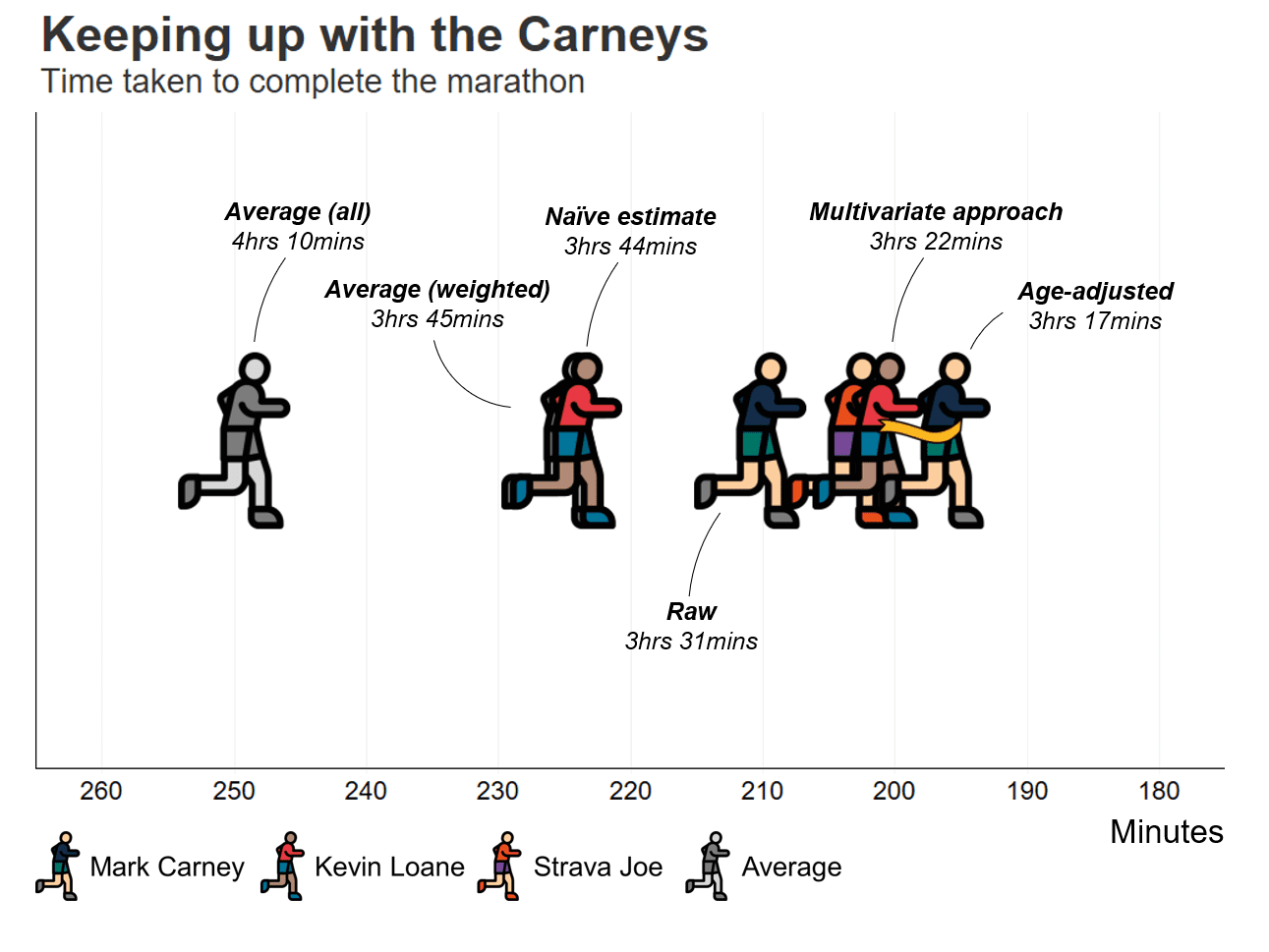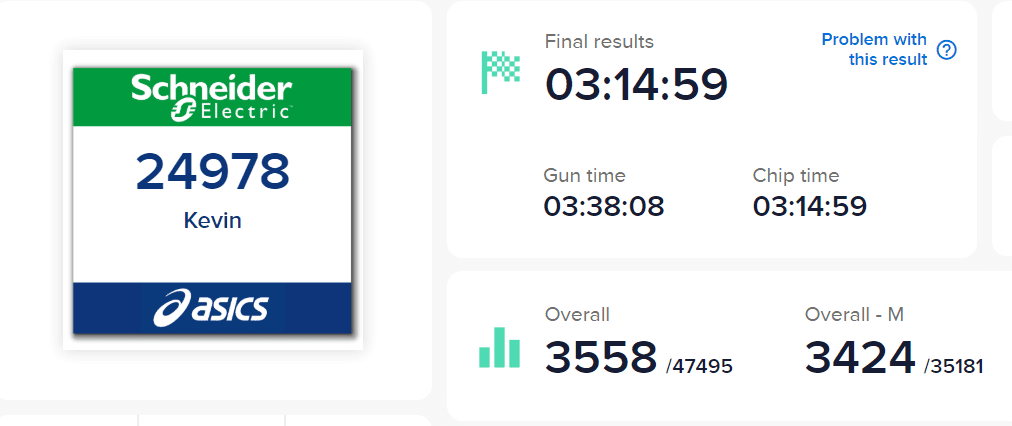A sideways look at economics
How do you know someone is running a marathon? They will mention it right at the beginning of their blog post. But it’s not just me. All over town, people are logging miles, boring their friends with tales of the taper (sometimes this includes cigarettes as well as lunch 10ks), and doing their bit to keep Nike’s share price near record highs. Different people have different objectives. In my case, I set a goal of beating Mark Carney’s time from the 2015 London marathon (3 hours and 31 minutes). I figured that matching his professional achievements would be tough, so the least I could do was outperform him on the road.
That target time has since been reduced to 3 hours and 17 minutes after a co-worker pointed out that I should start with a handicap, based on the fact that I’m more than twenty years younger than Mr Carney.[1] Sunday will show whether I’m better able to reach escape velocity than him, but a quick look at the data doesn’t bode well.
The average approach: according to www.marastats.com, the average male marathoner finishes in 4 hours 10 minutes. The governor didn’t get the top job at Threadneedle Street by just being average and I’ll have to do better than that too.
The naïve approach: here I simply assume that my next performance will equal my previous one. Having never run a marathon before, I take the average pace in my last long run and extrapolate that. Doing so gives a time of 3 hours 44 minutes, which is better than average, but slower than the governor, even before adjusting for his advanced age. Things are not off to a good start.
I’ve done several long runs this year. It’s possible the most recent one was an aberration. To account for this, I decide to look at my most recent five. This adjustment is cold comfort. It makes pretty much zero difference whether I take the latest run, a simple average of long runs or a weighted average that places greater emphasis on more recent runs.
I’m a first-timer. However, plenty of other people have completed 26.2 miles, as readers who have been harangued for donations this spring can probably attest. (The governor raised over £80,000 for Cancer UK. I opt against any attempt to compete on this metric.) The performances of others with a similar profile should help to predict mine. After a Saturday 5k, I stalk some of the competitors at my local parkrun on Strava, and find a guy called Joe who finished just ahead of me. He completed the Berlin marathon in 3 hours and 22 minutes last year, offering a small ray of hope.[2]
That bout of optimism is quickly doused after I find work by a couple of US statisticians, who have put together a more rigorous approach to forecasting marathon times than scrolling through social media exercise apps. They crowdsourced data from around 2,500 competitors, which gave them the opportunity to drill down on multiple variables, such as weight, speed and distance, to find out what really matters for predicting marathon times. They find that the most relevant factors are personal bests in shorter distances and average mileage during training — speed and endurance. Personal bests provide an indication of where someone’s maximum performance lies, while average mileage offers insight into whether the person in question can sustain that effort for 42km. I plug in my data: 3 hours and 22 minutes is the forecast time.
So, there we have it. I’ll probably finish with a time between 3 hours and 22 minutes and 4 hours and 10 minutes, with the average of predictions being 3 hours and 41 minutes. No individual method predicts a time faster than the governor’s age-adjusted one, though his actual time may be in reach. I may have to accept an uncomfortable truth. Not only has Mark Carney run two G7 central banks, but while doing that, he also managed to find the time to become a better runner than me. Here’s hoping for an upside surprise.

UPDATE: He did it…

[1] To adjust for age, I matched Mark Carney’s age-adjusted percentile (88%) for the 18–39 age category.
[2] The person in question exists but their name and location of the race have been changed to guarantee privacy.